
Kolovai: The Heartbeat of Tongan Tradition
Welcome to Kolovai, a charming village situated on the western coast of Tongatapu, the main island of Tonga. Kolovai is known for its deep-rooted traditions and cultural heritage, making it a captivating destination for those eager to experience the authentic spirit of Tonga. The village is home to the iconic flying foxes, or fruit bats, which are considered sacred and can be seen roosting in the trees during the day. In Kolovai, visitors can witness traditional Tongan ceremonies, including the kava ceremony, which is a significant social event involving the preparation and drinking of kava, a beverage made from the root of the kava plant. The village is also famous for its ancient, intricately carved wooden buildings and beautiful natural surroundings, offering a glimpse into the country's rich history and natural beauty. Kolovai's welcoming community and slower pace of life provide a peaceful retreat from the hustle and bustle of modern life. The village's beaches, with their pristine sands and clear waters, are perfect for relaxation and reflection. Whether you're interested in exploring cultural traditions, enjoying the serene environment, or simply soaking up the local hospitality, Kolovai offers a unique and memorable experience for every traveler.
Local tips in Kolovai
- Respect local customs and traditions, especially during ceremonies.
- Visit the flying fox sanctuary in the early morning or late afternoon for the best views.
- Dress modestly when exploring the village and interacting with locals.
- Try the traditional kava drink in a local ceremony.
- Bring cash, as credit cards are not widely accepted in the village.
- Plan your visit around local festivals for an immersive cultural experience.
When is the best time to go to Kolovai?
Iconic landmarks you can’t miss
Mapu'a Vaea Blowholes
Explore the breathtaking Mapu'a Vaea Blowholes in Tonga, a natural wonder where the Pacific Ocean creates stunning water jets against a backdrop of stunning landscapes.
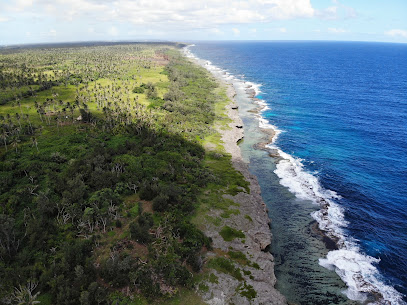
Royal Palace of Tonga
Experience the Royal Palace of Tonga, a stunning historical site showcasing the rich cultural heritage and royal history of the Tongan monarchy.
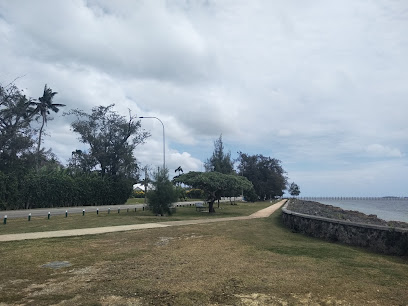
Anahulu Cave
Explore the enchanting Anahulu Cave in Haveluliku, a natural wonder perfect for swimming and discovering breathtaking beauty.
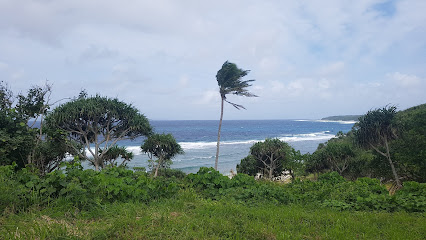
Billfish Bar and Restaurant
Discover the flavors of Tonga at Billfish Bar and Restaurant, a top spot in Nuku'alofa for delicious local cuisine and refreshing beverages.
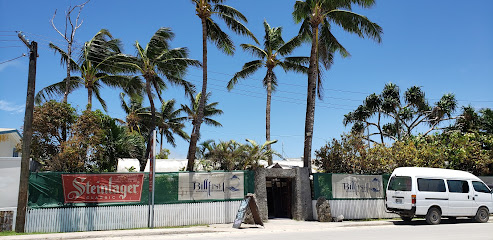
Royal Tombs
Explore the Royal Tombs of Nuku'alofa, a historical landmark that offers a glimpse into Tonga's majestic royal heritage and rich cultural traditions.
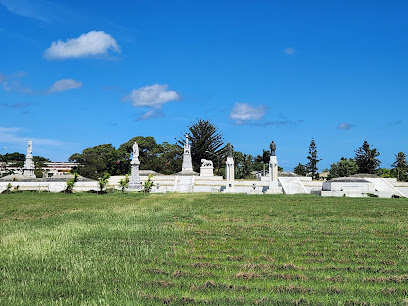
Tsunami Rock
Discover the breathtaking beauty of Tsunami Rock in Kala'au, Tonga, where nature and local legends come together in an unforgettable experience.
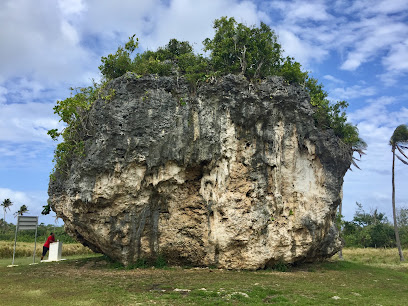
Ancient Tonga
Discover the rich history and breathtaking landscapes at Ancient Tonga, a must-visit destination in Nuku'alofa for all travelers.
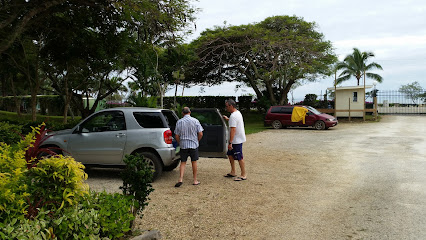
Ha'amonga 'a Maui Trilithon
Explore the Ha'amonga 'a Maui Trilithon, an iconic historical landmark that embodies Tonga's rich cultural heritage and architectural marvels.
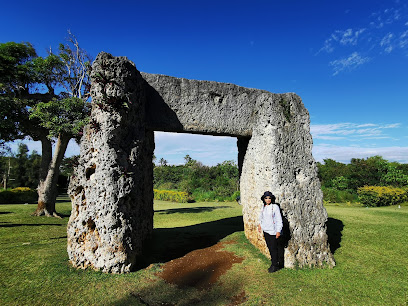
Talamahu Market
Discover the vibrant culture and fresh produce of Tonga at Talamahu Market, a must-visit for every traveler in Nuku'alofa.
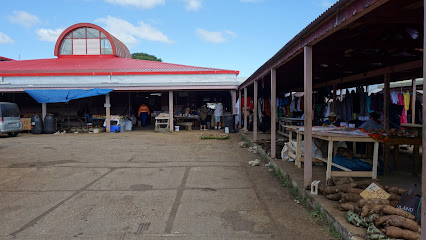
Nuku'alofa Tonga Temple
Explore the tranquil beauty of Nuku'alofa Tonga Temple, a spiritual haven and architectural gem in the heart of Tonga.
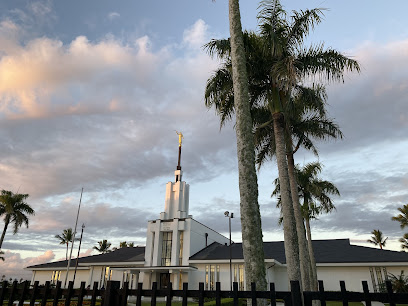
Vakaloa Beach Resort
Discover tranquility and adventure at Vakaloa Beach Resort, a serene escape in beautiful Kanokupolu, Tonga.
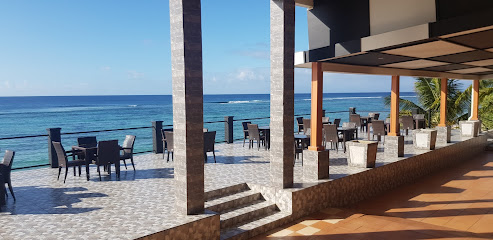
Winnies Bed & Breakfast
Experience Tongan hospitality at Winnies Bed & Breakfast in Nuku'alofa, where comfort meets culture in a serene setting.

Simon's Place Motel
Experience the warmth of Tongan hospitality at Simon's Place Motel, your perfect retreat in Nuku'alofa for relaxation and adventure.

House of Tonga
Experience the essence of Tonga at the House of Tonga: where comfort meets adventure and local culture is celebrated.
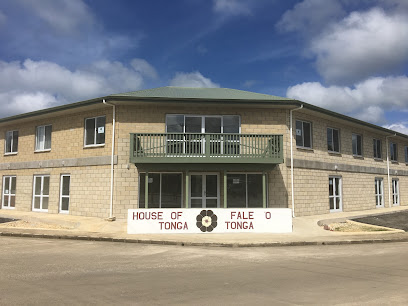
Happy Sailor Tattoo Tonga
Capture your Tongan adventure at Happy Sailor Tattoo, where artistry and storytelling come together in the heart of Nuku'alofa.
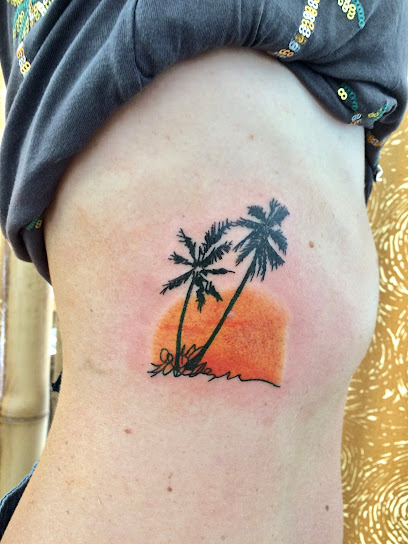
Unmissable attractions to see
Mapu'a Vaea Blowholes
Discover the awe-inspiring Mapu'a Vaea Blowholes in Houma, Tonga, where nature's power creates breathtaking water displays against stunning ocean vistas.
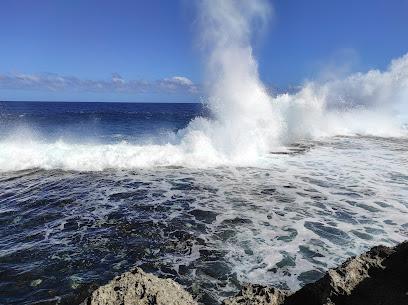
Anahulu Cave
Explore the enchanting Anahulu Cave in Haveluliku, Tonga – a natural wonder filled with stunning formations and rich cultural heritage.
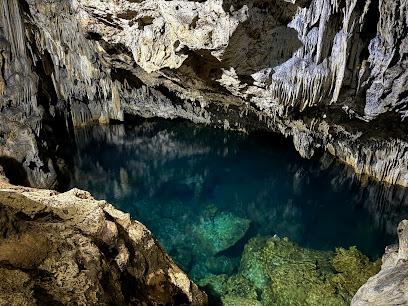
Royal Palace Of Tonga
Explore the Royal Palace of Tonga, a historical gem in Nuku'alofa that offers a captivating glimpse into the island's regal heritage and rich traditions.
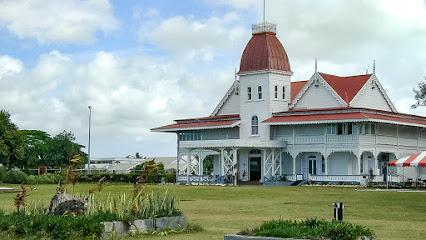
Royal Tombs
Explore the Royal Tombs in Nuku'alofa, where Tonga's rich history and regal heritage come to life amidst stunning scenery.
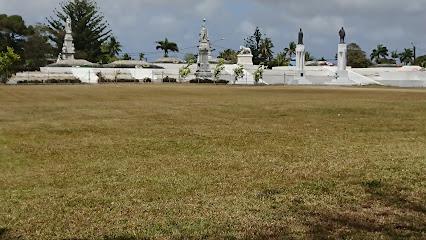
3 Headed Coconut
Experience the unique beauty and cultural richness of Tonga at the iconic 3 Headed Coconut attraction in Matahau.
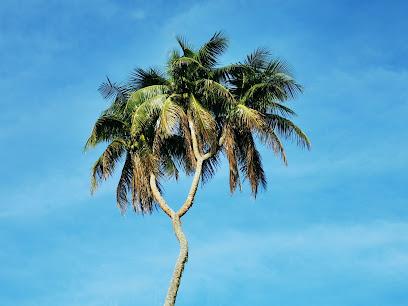
Ha'atafu Beach
Discover the pristine beauty of Ha'atafu Beach in Tonga, where azure waters meet white sands for an unforgettable tropical escape.
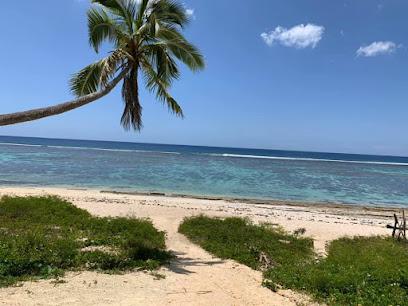
Captain Cook Landing Site
Explore the Captain Cook Landing Site in Alaki, Tonga – a blend of history and natural beauty, where exploration meets tranquility.
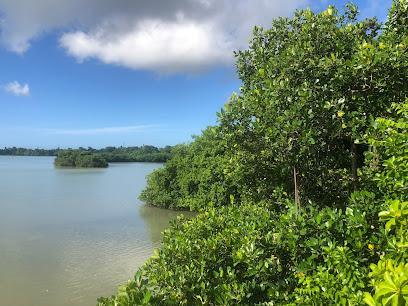
The Cliffs Overlook
Discover the breathtaking vistas and serene beauty of The Cliffs Overlook in Fua'amotu, a must-visit destination for every traveler exploring Tonga's natural wonders.
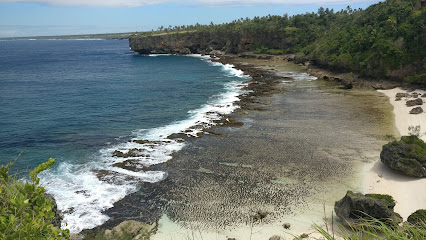
Paepae o Tele'a
Explore Paepae o Tele'a, a historical landmark in Mu'a, Tonga, revealing the rich cultural heritage and ancient traditions of this beautiful island nation.
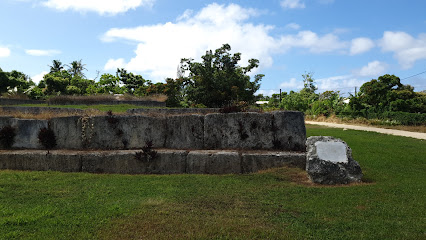
Tonga National Museum
Explore Tonga's captivating heritage at the Tonga National Museum, where history, culture, and art come alive in the heart of Nuku'alofa.
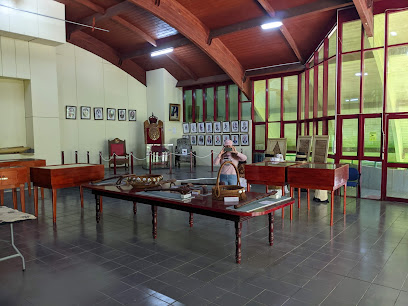
Maka Fa'akinanga
Explore Maka Fa'akinanga in Niutoua, a historical landmark that showcases the rich cultural tapestry of Tonga and its breathtaking natural beauty.
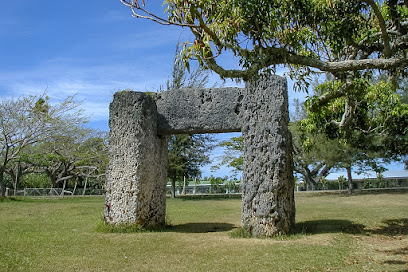
Rock Garden Coral Formations
Explore the vibrant marine life and stunning coral reefs at the Rock Garden Coral Formations, a must-visit nature preserve in Pangai, Tonga.
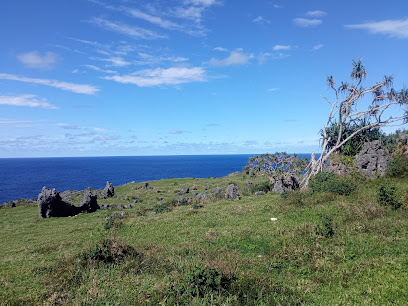
Turtle sanctuary
Explore the Turtle Sanctuary in Nuku'alofa, where conservation meets education in a beautiful natural setting, showcasing the charm of marine life.
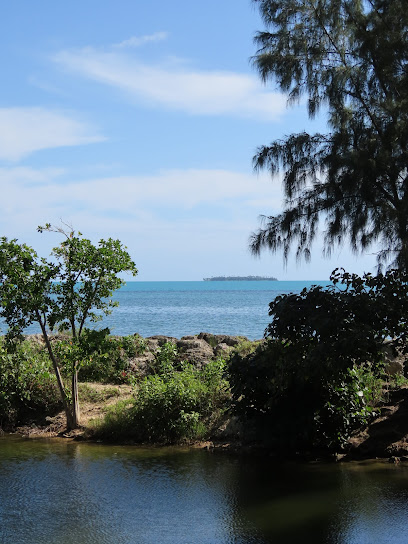
Li 'Anga Huo 'A Maui Natural Archway
Explore the breathtaking beauty of Li 'Anga Huo 'A Maui Natural Archway, a stunning natural wonder in Pangai, Tonga, surrounded by lush landscapes and vibrant marine life.
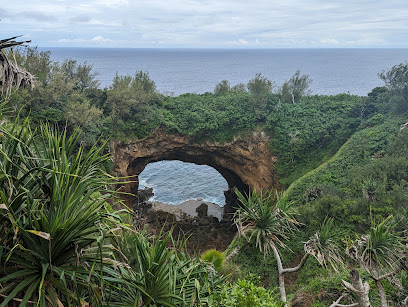
Teta Tours
Discover Tonga's beauty and culture with Teta Tours in Nuku'alofa, your trusted partner for unforgettable travel experiences in the South Pacific.
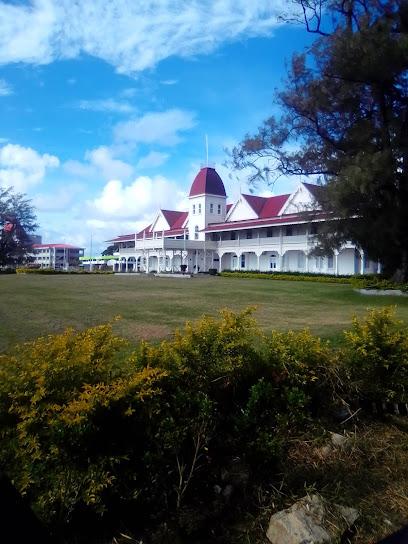
Essential places to dine
Cafe Escape
Experience the vibrant flavors of Nuku'alofa at Café Escape, where local cuisine meets international delights in a cozy setting.
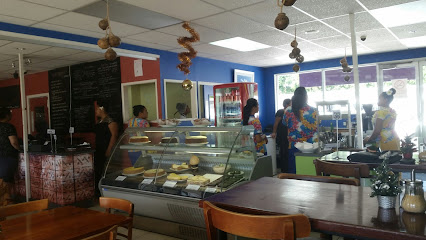
Billfish Bar and Restaurant
Discover the flavors of Tonga at Billfish Bar and Restaurant, where local cuisine meets vibrant ambiance in Nuku'alofa.
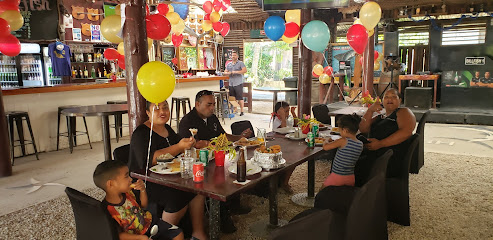
Marco's Pizza Pasta
Experience the taste of Italy in Nuku'alofa at Marco's Pizza Pasta—where every bite tells a story.
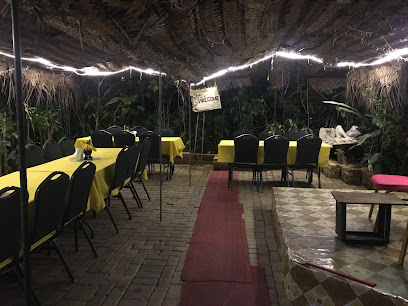
Chef Zero Restaurant
Discover the fusion of Tongan flavors and global cuisine at Chef Zero Restaurant in Nuku'alofa.
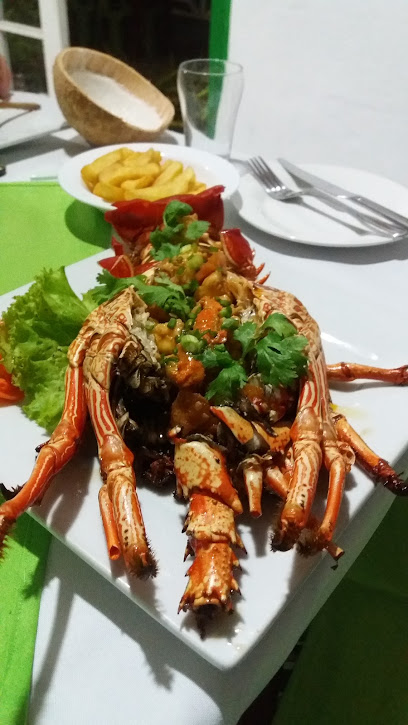
The TOP Restaurant and Lounge
Experience exquisite dining at The TOP Restaurant and Lounge in Nuku'alofa, where traditional Tongan flavors meet breathtaking views.
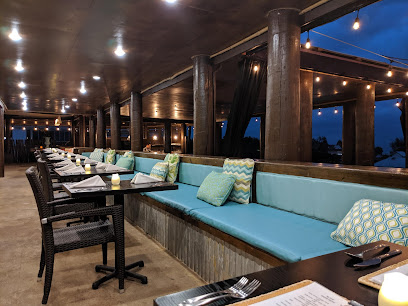
Little Italy Pizzeria Restaurant
Savor authentic Italian dishes at Little Italy Pizzeria Restaurant in Nuku'alofa - your taste of Italy in Tonga awaits.
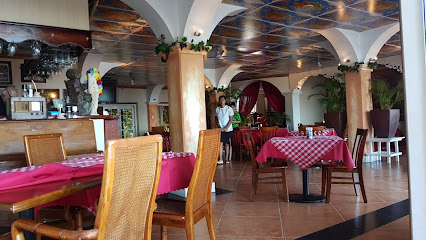
Mum's Cafe Nukualofa
Discover authentic Tongan cuisine at Mum's Cafe in Nuku'alofa – where every meal tells a story.
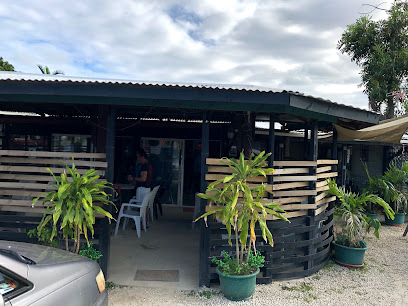
Lunarossa Restaurant
Savor authentic Italian flavors at Lunarossa Restaurant in Nuku'alofa - an unforgettable culinary experience awaits!
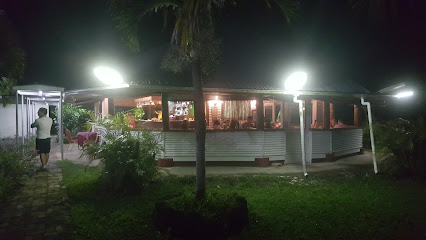
Ngutulei Bar & Restaurant
Discover Ngutulei Bar & Restaurant in Nuku'alofa for delicious local cuisine and vibrant ambiance amidst stunning ocean views.
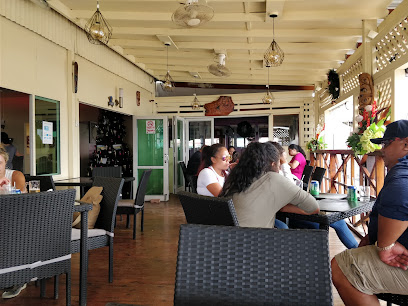
Evergreen Chinese Restaurant
Experience authentic Chinese flavors at Evergreen Chinese Restaurant in Nuku'alofa – a culinary delight blending tradition with local freshness.
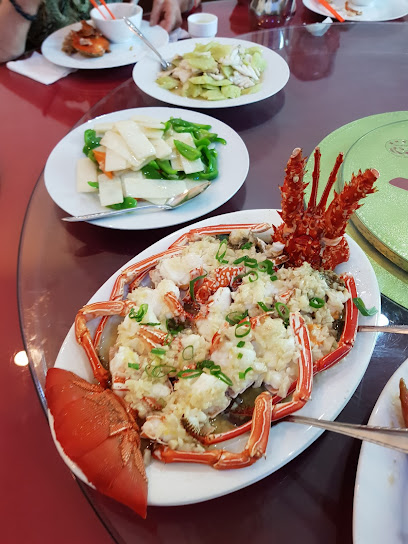
Vietnamese Cafe
Experience the essence of Vietnam with every bite at the Vietnamese Cafe in Nuku'alofa—where authentic flavors meet warm hospitality.
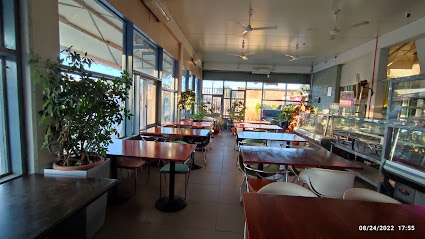
Frangipani - Korean Restaurant/Karaoke
Experience authentic Korean cuisine and vibrant karaoke at Frangipani in Nuku'alofa - where great food meets unforgettable fun.
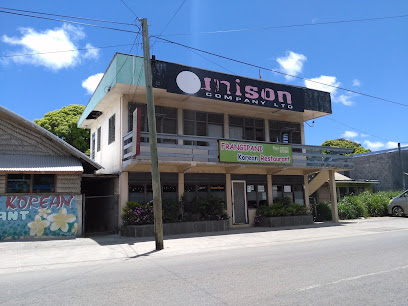
Sabrina's Chicken Vilovilo
Experience authentic Tongan barbecue at Sabrina's Chicken Vilovilo in Nuku'alofa—where every bite tells a story.
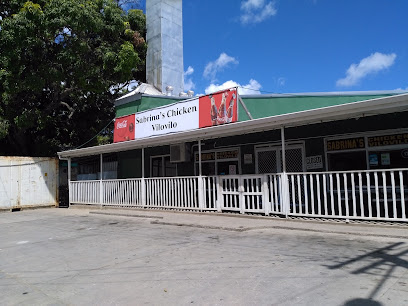
Cottage Breeze Restaurant
Experience authentic Tongan flavors at Cottage Breeze Restaurant in Nuku'alofa – where hospitality meets delicious cuisine.
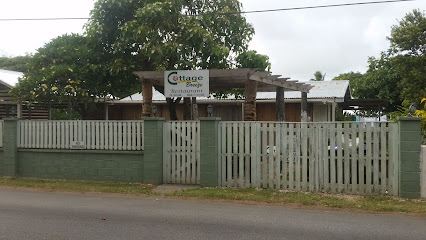
Tropical Taste
Discover authentic Tongan flavors at Tropical Taste in Nuku'alofa – where every dish tells a story.
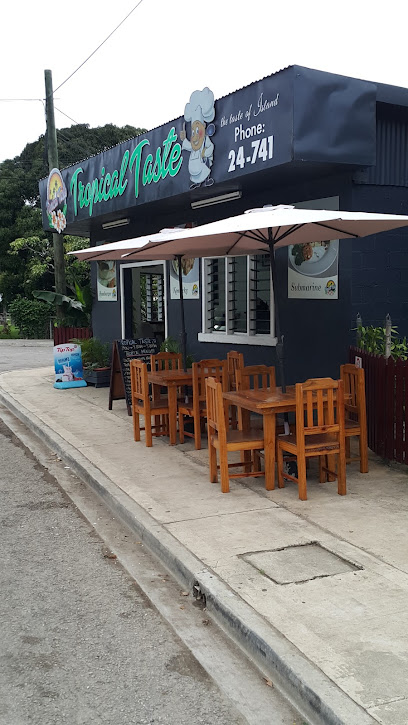
Markets, malls and hidden boutiques
Molisi Supermarket
Explore local flavors at Molisi Supermarket in Nuku'alofa, your go-to destination for Tongan groceries and unique culinary experiences.
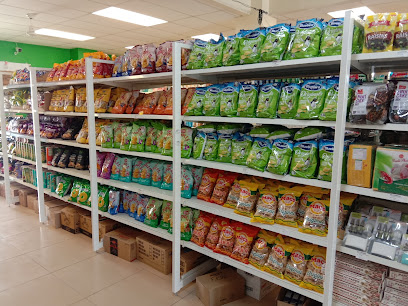
Hiki 'O Tonga
Discover the vibrant shopping experience at Hiki 'O Tonga in Nuku'alofa, where Tongan culture meets international brands in a welcoming atmosphere.
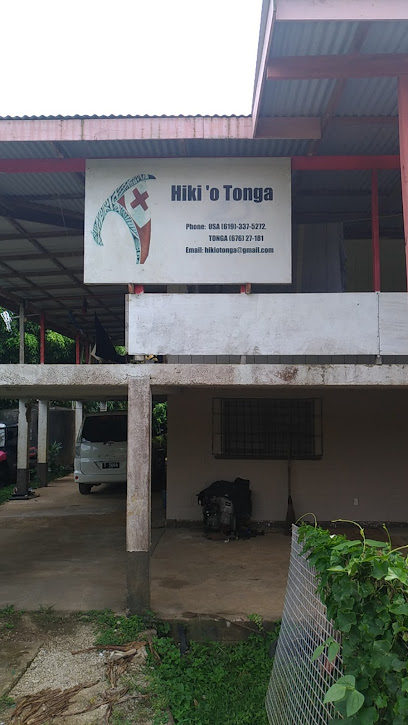
EZ TONGA ONLINE SHOPPING
Discover the heart of Tongan culture at EZ Tonga Online Shopping, your go-to destination for unique local products and everyday essentials in Nuku'alofa.

PTH Timber & Hardware
Explore quality home improvement supplies at PTH Timber & Hardware in Nuku'alofa, perfect for your DIY projects and renovations.
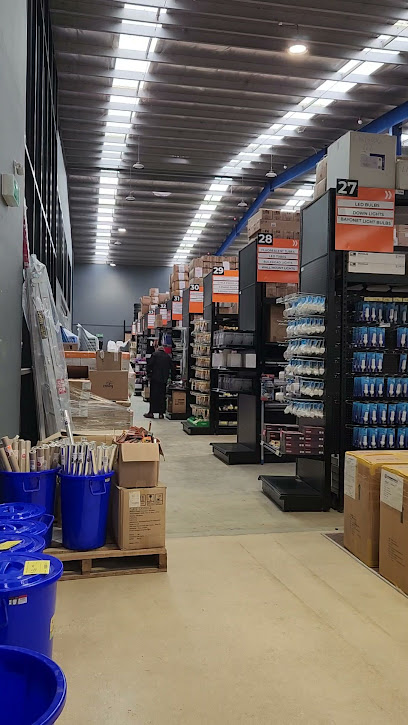
Si'i Kae Ola Supermarket
Explore local flavors and vibrant culture at Si'i Kae Ola Supermarket in Nuku'alofa - a must-visit for tourists seeking authentic Tongan experiences.
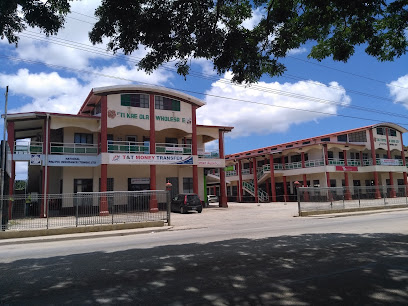
Fortune Star Shopping center
Explore the Fortune Star Shopping Center, Nuku'alofa's premier destination for shopping, dining, and cultural experiences in Tonga.
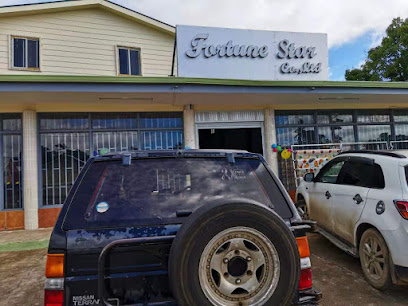
Friendly Island Bookshop
Explore the literary treasures of Tonga at Friendly Island Bookshop, where local charm meets a diverse collection of books.
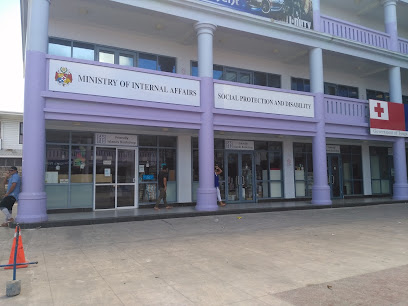
Zeal Tonga
Explore the best selection of vaporizers and accessories at Zeal Tonga, your go-to shop in Nuku'alofa for quality vaping products.
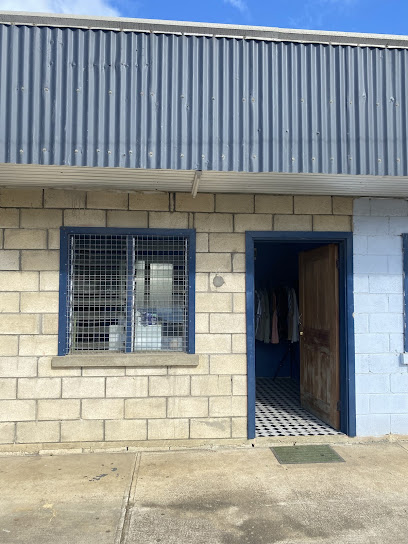
Leiola
Discover the finest selection of local and international beers at Leiola, a quintessential stop for beer lovers in Nuku'alofa, Tonga.
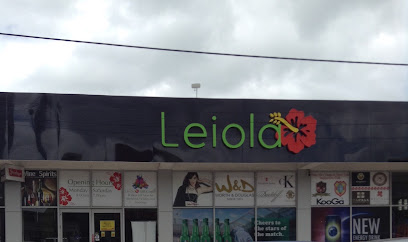
Value City (Tonga) Ltd.
Uncover unique finds and celebrate sustainable shopping at Value City (Tonga) Ltd., Nuku'alofa's gem for second-hand treasures.
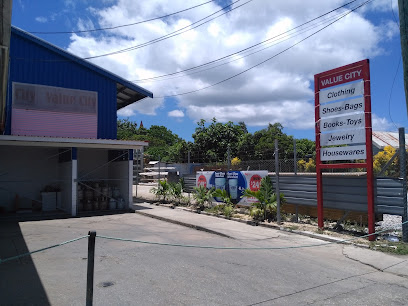
L&G Store
Explore local and international fashion at L&G Store in Nuku'alofa, where unique styles meet Tongan culture for an unforgettable shopping experience.
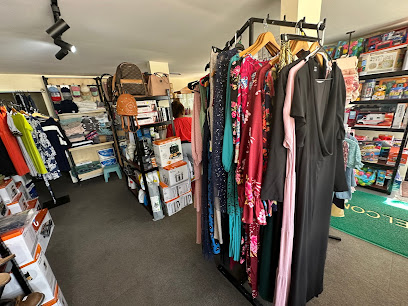
Le-Ata Tonga
Explore Le-Ata Tonga in Nuku'alofa for unique clothing and accessories that embody Tongan culture and contemporary fashion.
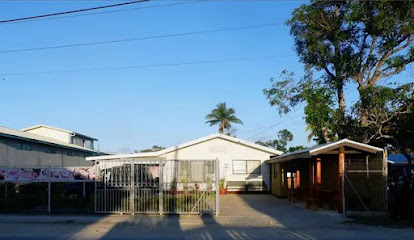
'Amanaki Lelei store
Discover local crafts and vibrant Tongan culture at the Amanaki Lelei Store in Veitongo, a unique shopping destination for authentic souvenirs.
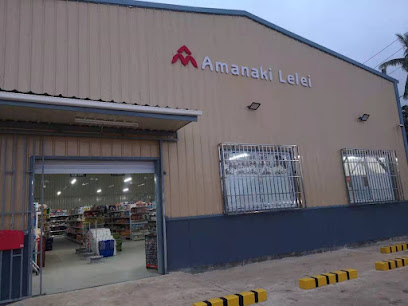
FORTUNE ISLAND SHOPPING CENTER
Discover the charm of Fortune Island Shopping Center in Nuku'alofa, where local crafts and vibrant culture await every visitor.
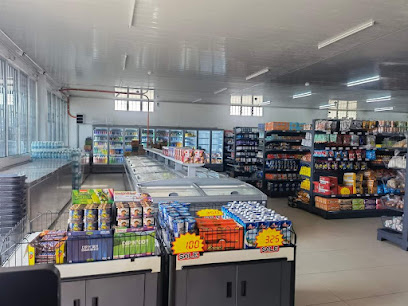
Narottam's
Discover the vibrant clothing styles of Tonga at Narottam's in Nuku'alofa, where local craftsmanship meets island fashion.
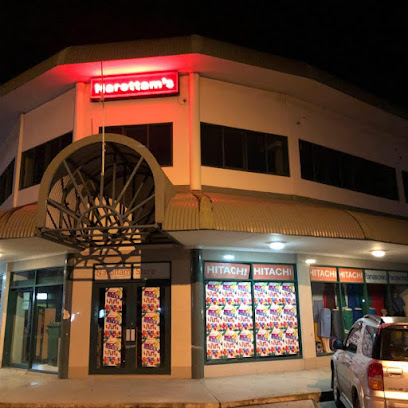
Essential bars & hidden hideouts
Billfish Bar and Restaurant
Experience the vibrant culture of Tonga at Billfish Bar and Restaurant, where delicious food and refreshing drinks come together in a lively atmosphere.
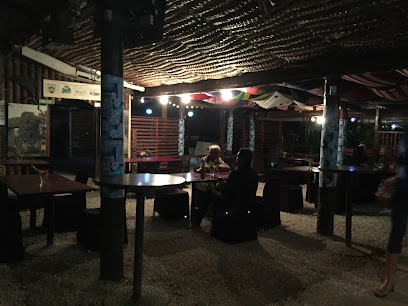
The TOP Restaurant and Lounge
Experience exquisite dining at The TOP Restaurant and Lounge in Nuku'alofa, where local flavors meet international cuisine in a stunning setting.
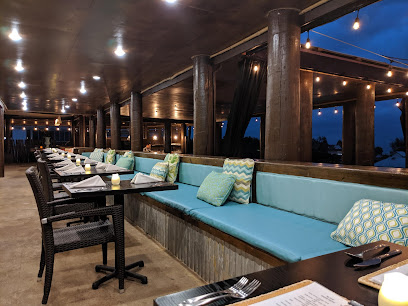
Ngutulei Bar & Restaurant
Discover the vibrant flavors of Tonga at Ngutulei Bar & Restaurant, a must-visit culinary destination in Nuku'alofa.
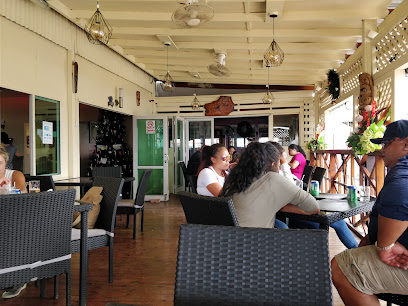
Nauti Ruby's Bar & Restaurant
Experience the vibrant culture and delicious cuisine at Nauti Ruby's Bar & Restaurant in Nuku'alofa, where every visit is a taste of island life.
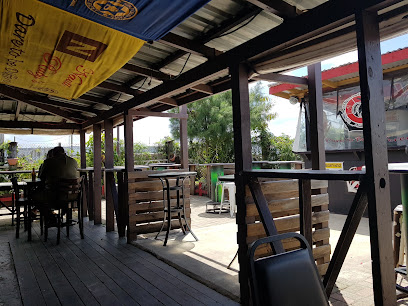
Reload Bar
Discover Reload Bar in Nuku'alofa: A vibrant bar offering creative cocktails and a welcoming atmosphere for locals and tourists alike.
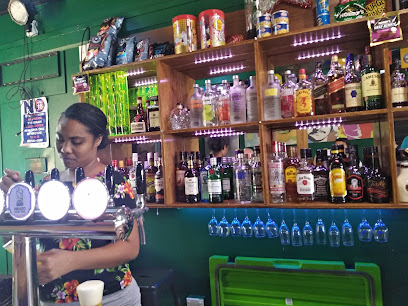
Cottage Breeze Restaurant
Discover the authentic tastes of Tonga at Cottage Breeze Restaurant, where local flavors meet stunning ocean views in Nuku'alofa.
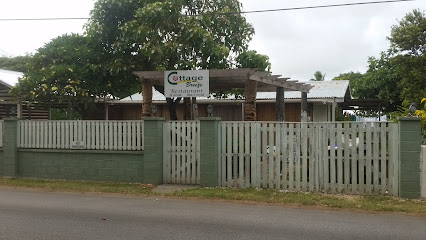
Tali'eva Inn Bar
Experience the vibrant atmosphere and authentic Tongan hospitality at Tali'eva Inn Bar in Nuku'alofa, where relaxation meets local culture.
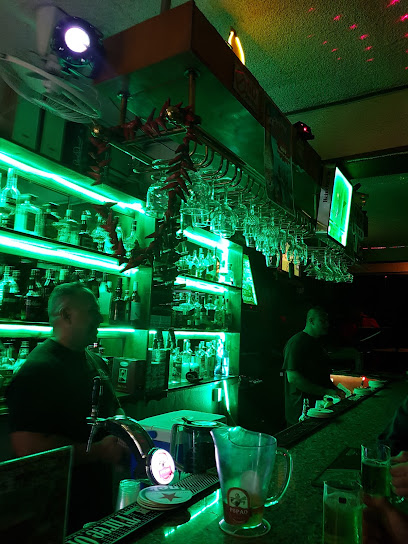
12 Seafood Restaurants
Experience the freshest seafood in Nuku'alofa, where local flavors and ocean-fresh ingredients create an unforgettable dining experience.
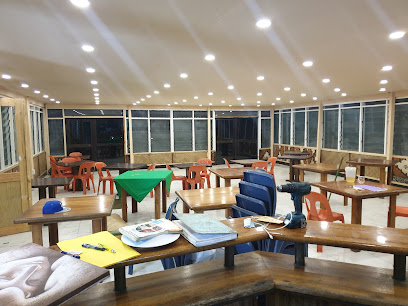
Ifo ifo burger bar
Discover the gastronomic delight of Ifo Ifo Burger Bar in Nuku'alofa, where gourmet burgers meet local flavors in a welcoming atmosphere.

Big Mama's Bar
Discover the lively atmosphere and stunning views at Big Mama's Bar on Pangaimotu Island, a must-visit for every traveler in Tonga.
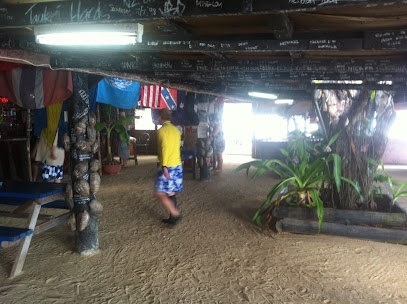
Snak Bar
Experience the flavors of Tonga at Snak Bar, a must-visit restaurant in Nuku'alofa for casual dining and local snacks.
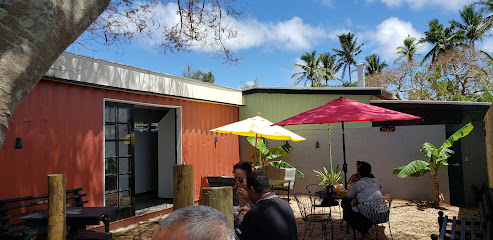
Oholei
Discover Oholei in Nukuhetulu, Tonga - a vibrant bar offering refreshing cocktails and a taste of local culture in a tropical paradise.

BAR42
Discover BAR42 in Nuku'alofa for an authentic taste of Tongan nightlife and a vibrant atmosphere that invites socializing and relaxation.

Baluamou bar
Discover the vibrant nightlife of Tonga at Baluamou Bar in Nukuhetulu, where local flavors and friendly vibes come together for an unforgettable experience.
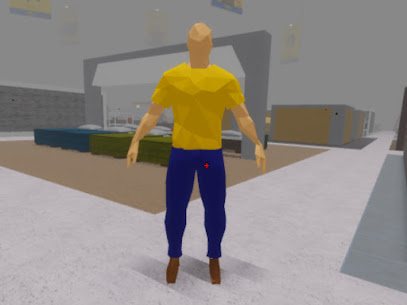
Local Phrases
-
- HelloMalo e lelei
[mah-loh eh leh-leh] - GoodbyeNofo ā
[noh-foh ah] - YesʻIo
['ee-oh] - NoʻIkai
[ee-kai] - Please/You're welcomeFakamolemole
[fah-kah-moh-leh-moh-leh] - Thank youMālō
[mah-loh] - Excuse me/SorryTulou
[too-loh] - How are you?Ko e ha u?
[koh eh hah oo] - Fine. And you?Mālie. Pehe ki heni?
[mah-lee-eh peh-heh kee heh-nee] - Do you speak English?Te u lea angilaisi?
[teh oo leh-ah ahn-gee-lie-see] - I don't understandʻIkai au maʻu
[ee-kai ow mah-oo]
- HelloMalo e lelei
-
- I'd like to see the menu, pleaseOku ou fiha keke, fakamolemole
[oh-koo oh-oo fee-hah keh-keh fah-kah-moh-leh-moh-leh] - I don't eat meatʻIkai au ʻai ika
[ee-kai ow ah-ee ee-kah] - Cheers!Mālo!
[mah-loh] - I would like to pay, pleaseOku ou fakamalie, fakamolemole
[oh-koo oh-oo fah-kah-mah-lee-eh fah-kah-moh-leh-moh-leh]
- I'd like to see the menu, pleaseOku ou fiha keke, fakamolemole
-
- Help!Fesoasoani!
[feh-soh-ah-soh-ah-nee] - Go away!Alu atu!
[ah-loo ah-too] - Call the Police!Faitio ki he Pōlice!
[fah-ee-tee-oh kee heh po-lee-cheh] - Call a doctor!Faitio ki he lōtoka!
[fah-ee-tee-oh kee heh low-toh-kah] - I'm lostʻOku ou ʻataʻata
[oh-koo oh-oo ah-tah-ah-tah] - I'm illʻOku ou ongo
[oh-koo oh-oo ohn-goh]
- Help!Fesoasoani!
-
- I'd like to buy...Oku ou fakatau...
[oh-koo oh-oo fah-kah-tow] - I'm just lookingʻOku ou toe fakakite
[oh-koo oh-oo toh-eh fah-kah-kee-teh] - How much is it?ʻOku e hiki ia?
[oh-koo eh hee-kee yah] - That's too expensiveTe u mahino fakaʻilonga
[teh oo mah-hee-noh fah-kah-ee-lohn-gah] - Can you lower the price?Te keke hifo e hau?
[teh keh-keh hee-foh eh hah-oo]
- I'd like to buy...Oku ou fakatau...
-
- What time is it?Ko e hola ia?
[koh eh hoh-lah yah] - It's one o'clockKo e taha
[koh eh tah-hah] - Half past (10)Taha kumi
[tah-hah koo-mee] - MorningTokonaki
[toh-koh-nah-kee] - AfternoonAfiafi
[ah-fee-ah-fee] - EveningPō
[poh] - YesterdayNe neiti
[neh neh-ee-tee] - TodayʻOtu
[oh-too] - TomorrowʻApō
[ah-poh] - 1Taha
[tah-hah] - 2Fua
[foo-ah] - 3Tolu
[toh-loo] - 4Fa
[fah] - 5Nima
[nee-mah] - 6Ono
[oh-noh] - 7Fitu
[fee-too] - 8Valu
[vah-loo] - 9Hiva
[hee-vah] - 10Hongofulu
[hoh-ngoh-foo-loo]
- What time is it?Ko e hola ia?
-
- Where's a/the...?Ko fē he/tō...
[koh feh heh/toh] - What's the address?Ko e tuʻa ʻo e tuʻa?
[koh eh too-ah oh eh too-ah] - Can you show me (on the map)?Te keke fakaʻilonga mai au (ki he mapa)?
[teh keh-keh fah-kah-ee-lohn-gah mah-ee ow (kee heh mah-pah)] - When's the next (bus)?Ko e ʻaho kahaʻu (pasi)?
[koh eh ah-hoh kah-hah-oo (pah-see)] - A ticket (to ....)Tikite (ki ....)
[tee-kee-teh (kee)]
- Where's a/the...?Ko fē he/tō...
History of Kolovai
-
Kolovai, a picturesque village located on the island of Tongatapu in Tonga, was established centuries ago by early Polynesian settlers. The name 'Kolovai' is derived from the Tongan words 'kolo' meaning village and 'vai' meaning water, reflecting the abundant natural water sources that made the area ideal for settlement.
-
In the early 19th century, Christian missionaries arrived in Kolovai, bringing with them new religious beliefs and practices. The conversion of local chiefs and residents significantly influenced the cultural and social structure of the village. The establishment of churches became central to community life, and the influence of Christianity is still evident in Kolovai today.
-
King George Tupou I, the first king of a unified Tonga, played a crucial role in shaping the history of Kolovai. His reign from 1845 to 1893 brought about significant political and social changes, including the implementation of a new legal system and the promotion of Christianity. Kolovai, like many other villages in Tonga, experienced these transformative effects, which laid the foundation for modern Tongan society.
-
Kolovai has historical ties to the Tongan monarchy, with several royal visits and events taking place in the village over the years. The close relationship between Kolovai and the royal family has fostered a sense of pride and loyalty among the villagers. Traditional ceremonies and celebrations often see the participation of royal family members, further cementing this bond.
-
Located near Kolovai, the Ha'amonga 'a Maui Trilithon is a significant cultural and historical landmark. Believed to have been constructed in the 13th century, this ancient stone structure is often referred to as the 'Stonehenge of the Pacific.' It is thought to have served as a gateway or a celestial calendar, and its precise origin and purpose continue to intrigue historians and archaeologists.
-
During the Tongan Civil War in the mid-19th century, Kolovai played a strategic role due to its location and resources. The conflict, primarily between the forces of King George Tupou I and various rival chiefs, saw Kolovai becoming a vital supply and support base. The village's involvement in the war highlighted its importance in the broader political and military landscape of Tonga.
-
Kolovai is renowned for its rich cultural heritage and preservation of traditional Tongan practices. The village is known for its skilled artisans who create traditional handicrafts, including weaving and carving. Cultural festivals and events, such as the Heilala Festival, showcase the vibrant traditions and customs of Kolovai, attracting visitors from across Tonga and beyond.
-
In recent decades, Kolovai has seen a blend of traditional and modern influences. While maintaining its cultural roots, the village has also embraced contemporary developments in education, infrastructure, and technology. The harmonious coexistence of the old and the new in Kolovai provides a unique glimpse into how Tongan society adapts to changing times while honoring its rich history.
Kolovai Essentials
-
Kolovai is located on the island of Tongatapu in Tonga. To reach Kolovai, you will first need to fly into Fua'amotu International Airport, which is the main gateway to Tonga. From the airport, Kolovai is approximately a 30-minute drive. You can hire a taxi or rent a car at the airport for the journey. Some accommodations in Kolovai may also offer airport transfer services.
-
Kolovai is a small village and is best explored on foot. For longer distances, local buses and taxis are available. Buses are a cost-effective way to travel and connect Kolovai with other parts of Tongatapu. Taxis are also readily available, but it is advisable to agree on the fare before starting your journey. Renting a car is another option, providing flexibility to explore the island at your own pace.
-
The official currency in Tonga is the Tongan Pa'anga (TOP). Most businesses in Kolovai accept cash payments, and it's a good idea to carry sufficient cash as credit card acceptance may be limited. ATMs are available in Nuku'alofa, the capital city, which is a short drive from Kolovai. Ensure you exchange money or withdraw cash before heading to Kolovai to avoid any inconvenience.
-
Kolovai is generally a safe destination for tourists. However, it is always wise to take standard precautions. Avoid walking alone at night in unfamiliar areas and keep an eye on your belongings in crowded places. There are no specific high-crime areas targeting tourists, but staying vigilant and aware of your surroundings is recommended.
-
In case of emergency, dial 911 for immediate assistance. The nearest hospital is Vaiola Hospital in Nuku'alofa, which is well-equipped to handle medical emergencies. It is advisable to have travel insurance that covers medical emergencies. For minor health issues, there are pharmacies in Nuku'alofa where you can purchase over-the-counter medications.
-
Fashion: Do dress modestly, especially when visiting religious sites. Avoid wearing revealing clothing. Religion: Do respect local customs and traditions. Always cover your shoulders and knees when visiting churches. Public Transport: Do be respectful and give up your seat to elderly passengers. Don't eat or drink on public transport. Greetings: Do greet people with a handshake or a slight bow. A friendly 'Malo e lelei' (Hello) is appreciated. Eating & Drinking: Do try local delicacies and accept food offerings graciously. Don't refuse hospitality, as it is considered impolite.
-
To experience Kolovai like a local, visit the local markets where you can buy fresh produce and traditional Tongan goods. Engage with the locals, who are often friendly and willing to share stories about the village's history and culture. Don't miss the opportunity to witness traditional Tongan dances and ceremonies, which are a vital part of the local culture. For a unique experience, take a stroll along the beach during sunset for breathtaking views.
Trending Landmark in Kolovai
Nearby Cities to Kolovai
-
Things To Do in Vava'u
-
Things To Do in Ha'apai
-
Things To Do in Nuku'alofa
-
Things To Do in Pangai
-
Things To Do in Foa
-
Things To Do in Neiafu
-
Things To Do in Ha'ano
-
Things To Do in Eua
-
Things To Do in Levuka
-
Things To Do in Nausori
-
Things To Do in Suva
-
Things To Do in Rakiraki
-
Things To Do in Savusavu
-
Things To Do in Sigatoka
-
Things To Do in Labasa



